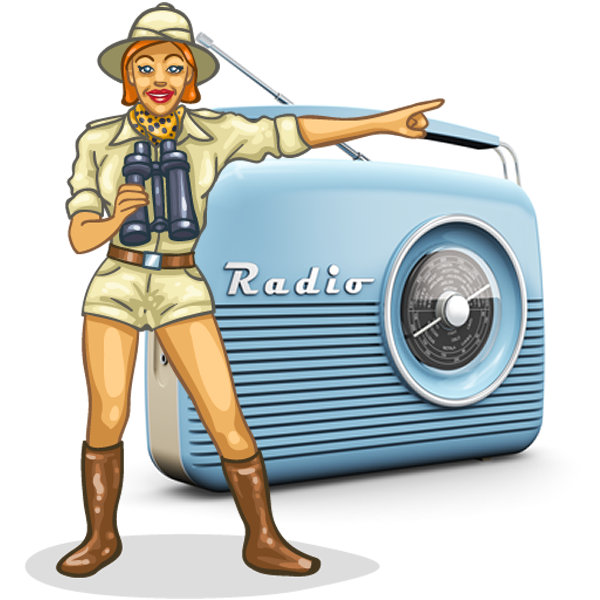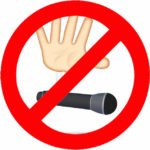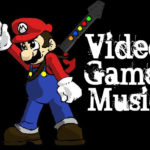Radio Programming – The Tour Guide Theory
By David A. Barber
Author of Gigging, Everything You Need to Know About Playing Gigs (Except How to Play Your Axe)
Not long ago in my home market a radio station changed hands. The new owners brought in new blood to run it and they changed up the tired oldies format by bringing in a load of new tunes. They went from Easy Listening to Modern AC (or similar), as far as I can tell. They also changed up the talent somewhat, bringing back a friend of mine who had previously worked at the station for many years. Because she’s a friend, and because I was basically sick of the other corporate owned stations I had been listening to for years, I tuned in. I didn’t expect much, since the old format was basically tired soft rock oldies. But the new stuff they brought in was fresh and exciting. I liked it. A few months later, though, I was sick of it, because they had begun playing the same limited playlist over and over again, just like every other station in town. Meanwhile they were advertising their new, fresh playlist, literally ad nauseam. Mind you, I only listen when I’m in my car, and mostly that’s morning and afternoon drive times, like the bulk of the rest of the world. Unlike the rest of the world, my vehicle is 20 years old and still has the factory radio in it. No fancy bluetooth enabled iPod hookups or anything, just a radio (and a rarely used cassette deck).
Because every station I listen to is playing the same boring playlist they have been playing for years, and only when a station changes hands or formats, do they get a whole new list of songs, I understand why people would rather listen to their iPods.
If you read my article on radio programming from more than a decade ago called the Heroin Theory, you understand the problem. Radio has spent the last 20-30 years trying to give the public what they want. Unfortunately, they don’t know what they want until they hear it and, these days, they don’t hear anything on the radio that hasn’t been thoroughly tested, graded, approved, sanitized and paid for by radio’s corporate overlords. (Only half joking there.) Which is why radio basically sucks.
What listeners are doing is, essentially the same as they always did, they hear something new that they love and they go buy it so they can listen to it over and over again, until they are sick of it.. They used to buy records or tapes. Today they buy downloads, or streams. They used to hear new music on the radio, but since radio doesn’t play much new music anymore, people rely on their friends, family, and social media to expose them to new music.
So it occurs to me that radio programmers should abandon the whole concept of trying give people what they want and instead give them something new. Once people know what kind of music they want, they can (and already do) go out and buy it, either at a record store, or as a download, or a stream. It doesn’t matter where they get it, the only thing important here is that they no longer (and really never did) go to the radio to listen over and over to their favorite new music.
The fact that radio has been trying to be that favorite music delivery vehicle for the last few decades has been the downfall of radio. If people really loved the programming, they’d keep listening even if was online or via satellite or whatever. But they mostly aren’t and that’s not going to change until radio changes.
One of the problems is that Radio Programmers act like they are selling music. They aren’t. They are giving it away for free. What they are selling is listeners. They sell the listeners to the advertisers, who get to shove ads into the ears of those listeners. Everybody in radio knows this, they just don’t act like it all the time. Instead, they act like Walmart and program music that they think the largest group of listeners wants to hear, and almost nothing else.
My new theory is that radio should be a place to discover new music. Radio Programmers are in an enviable position. They get all the new music from all the big labels and a whole lot of smaller ones. There’s never a shortage. Ask any radio promoter, they always have something new to listen to.
They should get rid all of the testing and focus groups and all that nonsense. You only need a few people with good ears (at each station – not at each corporate behemoth) and let them play what sounds good to them within the desired format. If there’s a strong response they can play it some more, but never leave anything in heavy rotation too long, because that prevents more new music from being played.
Think of radio, and the DJ, as a tour guide to new and old music.
If you’ve ever been on a tour of a museum, or region, or anything, you know that the tour guide points out things that you might otherwise overlook. Sure, you could walk around the museum by yourself, but you might not stop and appreciate that little sculpture in the corner created by the famous artist who sculpted something in a way nobody else ever had before. Even if you looked at it on your own, you might not realize that this was a groundbreaking piece of art by virtue of how it was made, or who made it, or what it’s made of, or who inspired it. The Tour Guide will always make sure this sort of thing isn’t overlooked. Indeed, the Tour Guide helps to foster appreciation in those of us who might otherwise overlook things. This would work terrifically on an oldies station as well as stations playing every other format.
This should be the role of the radio DJ (or “Air Talent” – I was once handed a business card that had that title on it. I thought it must be something like air guitar, but with talent). The DJs or programmers should root through the mass of new music, pick out the good stuff and play it for us. Maybe they also tell us why they think it’s good. What makes it interesting or unique or fun to listen to. We are the general public after all, and sometimes we do need experienced professionals to tell us what’s good and what isn’t. This is the same reason we pay good money for lawyers, doctors, and auto repairs. We could possibly do it ourselves, but sometimes it really takes an expert to help us realize when we are being fed a load of crap or a really good deal. Like when the Doctor tells you you are at risk of heart attack and advises you to change your diet, radio needs to let us know when we’re being fed lousy over-processed music from talentless hacks (or greedy record companies) by taking it out of rotation and replacing it with new high quality original music that gets us all excited about a new artist. We will respond by buying that music, in whatever format we prefer, and come back to the radio after we’ve had our fill of it.
So here’s the Tour Guide Theory in a nutshell:
Radio should be our Tour Guides to music instead of trying to be our iPods (and failing miserably).

 Previous Post
Previous Post Next Post
Next Post